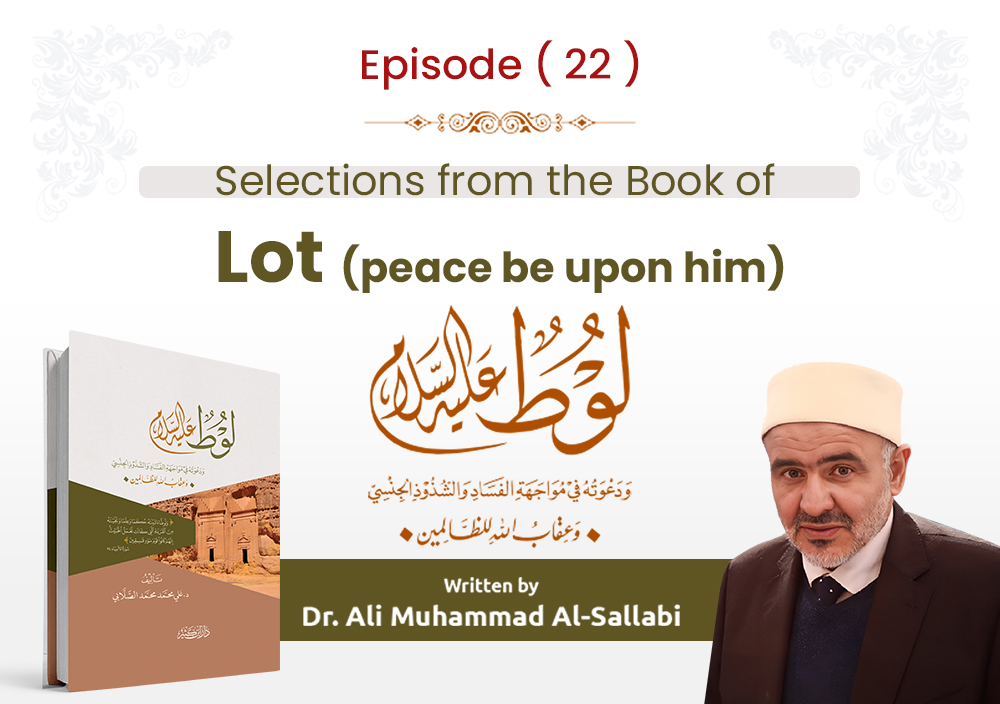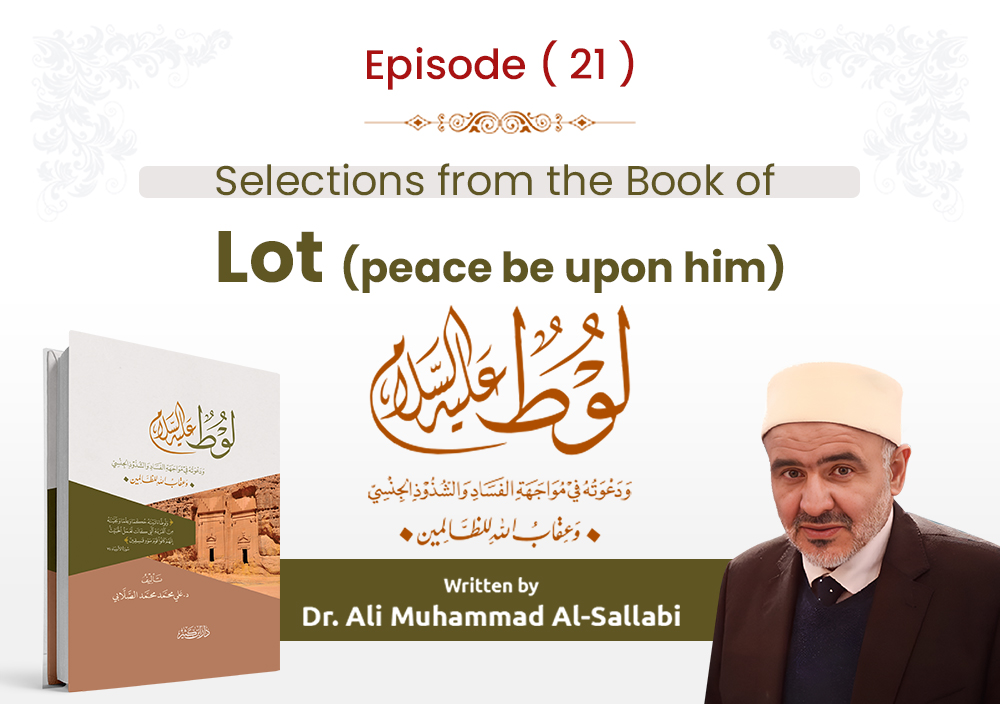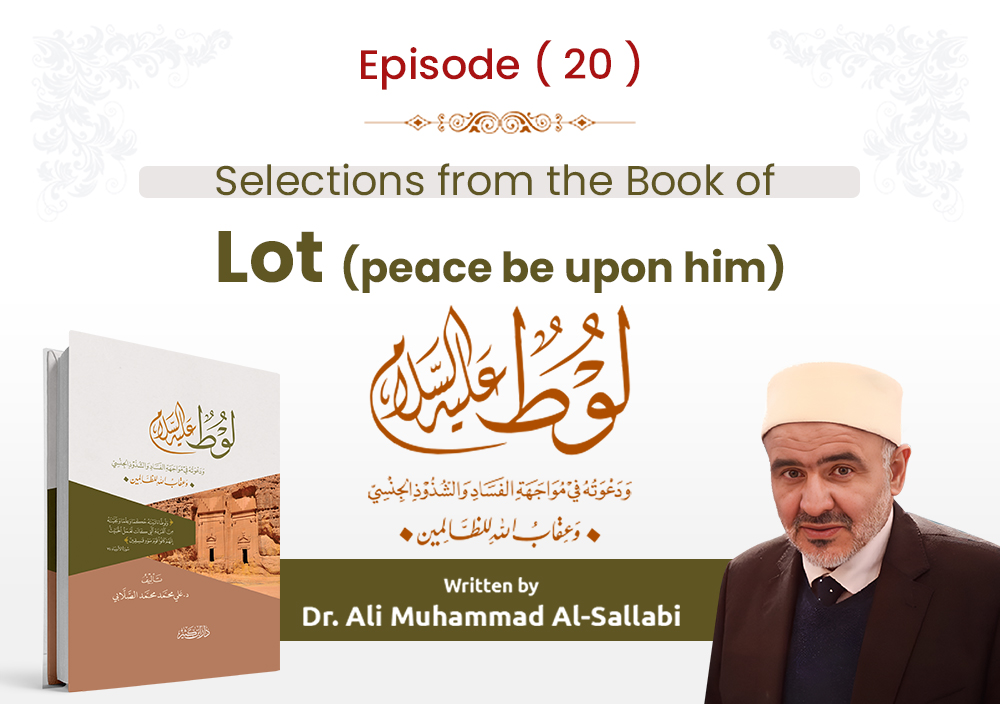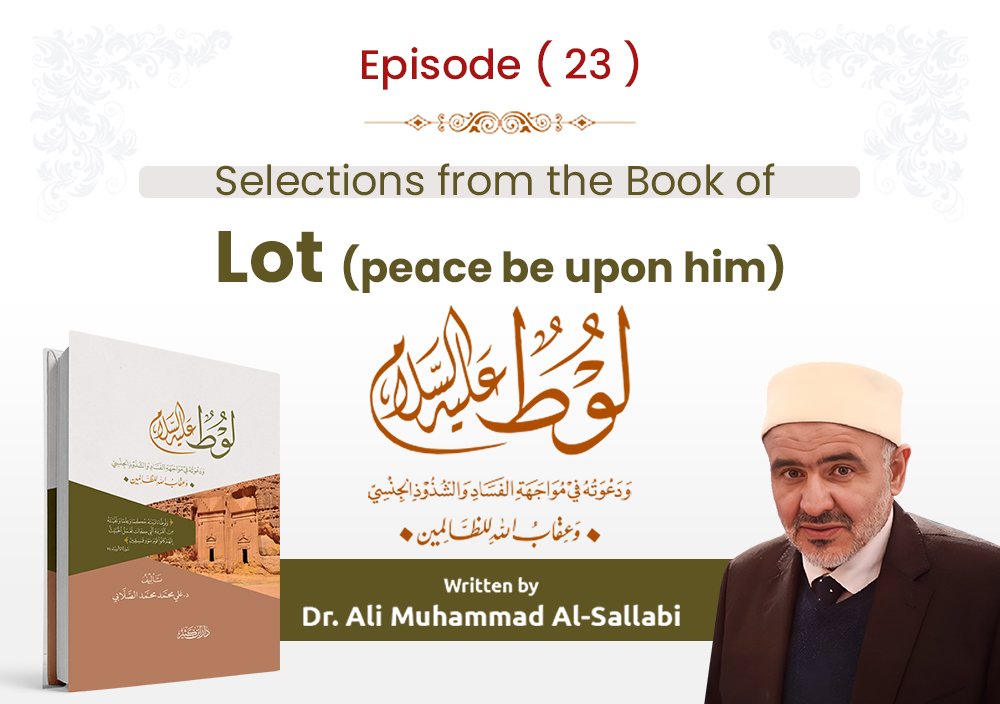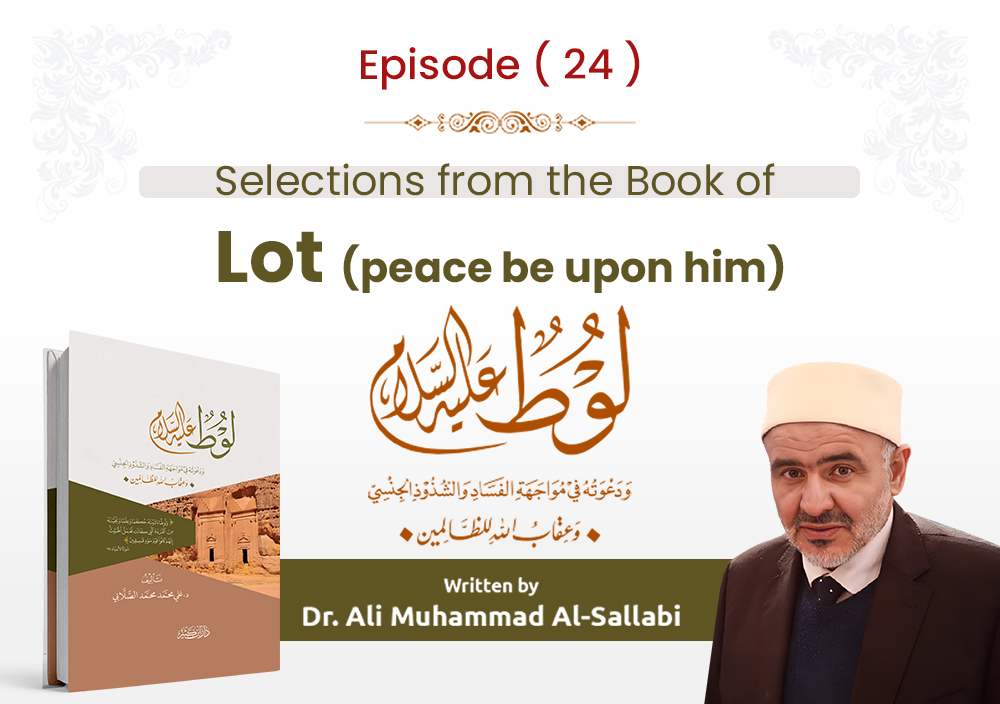The characteristics of angels associated with the story of Abraham (peace be upon him)
Selections from the Book ‘’Lot (peace be upon him) and his Mission in Confronting Corruption and Sexual Deviance’’ …
Written by Dr. Ali Muhammad al-Sallabi...
Episode (22)
The characteristics of angels associated with the story of Abraham (peace be upon him) can be summarized in three characteristics:
- The ability to form:
Allah Almighty created the angels from light and endowed them with the ability to take on any form. This is evident in the angels' visit to Abraham (peace be upon him) in the form of humans, which he did not recognize at first. They appeared in human form, and Abraham offered them food, but they did not eat. Later, the angels revealed the truth of the matter, as will be further explained, Allah willing.
- They do not eat or drink:
One of the characteristics of angels is that they do not eat, as Allah Almighty mentioned in the dialogue between the angels and Abraham (peace be upon him). Abraham offered them a roasted calf, but their hands did not reach out for it. Scholars unanimously agree that angels neither eat nor drink.
- Functions of angels:
Angels have various functions as mentioned in the Holy Quran and the Sunnah, and they are numerous. Among the functions highlighted in the story of Abraham (peace be upon him) are delivering glad tidings, executing punishment, and aiding the believers, as will be further elucidated in its appropriate context, Allah willing.
In His saying; {Abraham}, it refers to the esteemed messenger, Khalilullah, and the second greatest of Allah's messengers after the Seal of the Prophets (Muhammad). He is the father of the prophets, holding a lofty position with Allah and among all nations.
{with good tidings;}: The particle {with} is connected to {come}. The glad tidings refer to the good news that will come in the near or distant future. {with} indicates companionship, as they came for the purpose of delivering glad tidings, which accompanies them like a message accompanies the messenger who delivers it.
The scholar Ash-Shanqeeti said: "It is not explicitly mentioned here what glad tidings the angels brought to Abraham, but afterwards, it refers to the glad tidings of Isaac and Jacob, as stated in the verse: {And his wife was standing, and she smiled. Then We gave her good tidings of Isaac and after Isaac, Jacob.} [Hud: 71]. This is because the glad tidings of righteous offspring encompass both the mother and the father. This is evident from Allah's statement: {And We gave him good tidings of Isaac, a prophet from among the righteous.} [As-Saffat: 112], and His statement: {They said, "Fear not," and gave him good tidings of a learned boy.} [Adh-Dhariyat: 28], and His statement: {[The angels] said, "Fear not. Indeed, we give you good tidings of a learned boy".} [Al-Hijr: 53].
It is said that the glad tidings here refer to informing Abraham that they were sent to destroy the people of Lot. Therefore, the verses clarify this, as in the statement here in Surah Hud: {They said, "Fear not. We have been sent to the people of Lot".} [Hud: 70], and His saying: {They said, "Indeed, we have been sent to a people of criminals, (58) Except the family of Lot; indeed, we will save them all (59)} [Al-Hijr: 58-59], and His statement: {They said, "Indeed, we have been sent to a people of criminals (32) To send down upon them stones of clay, (33)} [Adh-Dhariyat: 32-33], and His saying: {And when Our messengers [i.e., angels] came to Abraham with the good tidings, they said, "Indeed, we will destroy the people of that [i.e., Lot's] city. Indeed, its people have been wrongdoers".} [Al-'Ankabut: 31]. The apparent view supports the first opinion. The last verse indicates this, as it explicitly states that they informed Abraham of the destruction of the people of Lot after giving him the good news. This is evident from the conditional clause used, indicated by the word {And when}, as you can see.
- Ali Muhammad al-Sallabi, Lot (peace be upon him) and his Mission in Confronting Corruption and Sexual Deviance, pp. 91-94.
- Lights of the statement in clarifying the Qur’an with the Qur’an, Muhammad al-Amin al-Shanqeeti, Dar al-Fikr for Printing and Publishing, Beirut, Lebanon, 1415 AH, 1995 AD, 3/29-30.
- Interpretation of Surah Hud, Ahmad Nofal, p. 257.
- Doctrinal issues in the dialogues of Abraham, peace be upon him, in the Holy Qur’an, p. 68.
For further information and review of the sources for the article, see:
The Book of ‘’Lot (peace be upon him) and his Mission in Confronting Corruption and Sexual Deviance’’ on the official website of Sheikh Dr. Ali Muhammad al-Sallabi:


